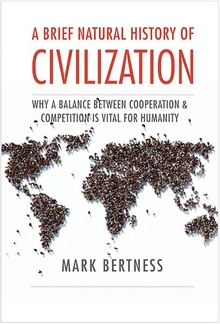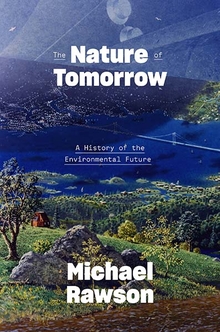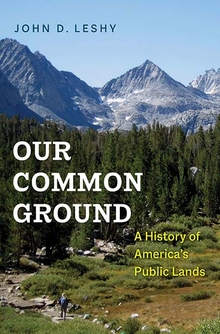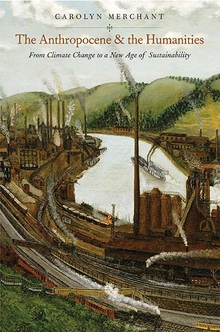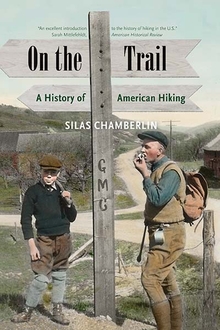A Brief Natural History of Civilization
WARNING
You are viewing an older version of the Yalebooks website. Please visit out new website with more updated information and a better user experience: https://www.yalebooks.com
Why a Balance Between Cooperation & Competition Is Vital to Humanity
Mark Bertness
A compelling evolutionary narrative that reveals how human civilization follows the same ecological rules that shape all life on Earth
Offering a bold new understanding of who we are, where we came from, and where we are going, noted ecologist Mark Bertness argues that human beings and their civilization are the products of the same self-organization, evolutionary adaptation, and natural selection processes that have created all other life on Earth. Bertness follows the evolutionary process from the primordial soup of two billion years ago through today, exploring the ways opposing forces of competition and cooperation have led to current assemblages of people, animals, and plants.
Bertness’s thoughtful examination of human history from the perspective of natural history provides new insights about why and how civilization developed as it has and explores how humans, as a species, might have to consciously overrule our evolutionary drivers to survive future challenges.
Offering a bold new understanding of who we are, where we came from, and where we are going, noted ecologist Mark Bertness argues that human beings and their civilization are the products of the same self-organization, evolutionary adaptation, and natural selection processes that have created all other life on Earth. Bertness follows the evolutionary process from the primordial soup of two billion years ago through today, exploring the ways opposing forces of competition and cooperation have led to current assemblages of people, animals, and plants.
Bertness’s thoughtful examination of human history from the perspective of natural history provides new insights about why and how civilization developed as it has and explores how humans, as a species, might have to consciously overrule our evolutionary drivers to survive future challenges.
Mark Bertness is Robert P. Brown Professor of Biology emeritus at Brown University. A widely published and highly regarded marine ecologist, he is best known for his work on the community ecology of marine shorelines.
“Starting from ecological and evolutionary principles that transcend our own species, Mark Bertness offers a new perspective on the rise of human civilization.”—Judith Bronstein, editor of Mutualism
"A Brief Natural History of Civilization uses the science of natural history to frame the peril and promise of our times."—Paul Ewald, author of Plague Time: The New Germ Theory of Disease
“Understanding the “big picture” of the development and trajectory of human civilization is vital as a global society faces collapse. Bertness’ book provides a brilliant short course on what should be the central topic for public education today.”—Paul R. Ehrlich, author of Human Natures
"A remarkable, far-ranging synthesis with something new and eye-opening on just about every page. Mark Bertness points to the powerful force of cooperation as our best hope."—James Gustave Speth, author of America the Possible: Manifesto for a New Economy
“Who am I? This book weaves a powerful argument that our sense of self and our culture is very tightly coupled to our sense of place in nature. A remarkable synthesis!”—Paul Dayton, Scripps Institution of Oceanography
“This book will change your understanding of what it means to be human.”—Robert M. Pringle, Princeton University
ISBN: 9780300245912
Publication Date: April 21, 2020
Publication Date: April 21, 2020
320 pages, 6 1/8 x 9 1/4
47 b/w illus.
47 b/w illus.

